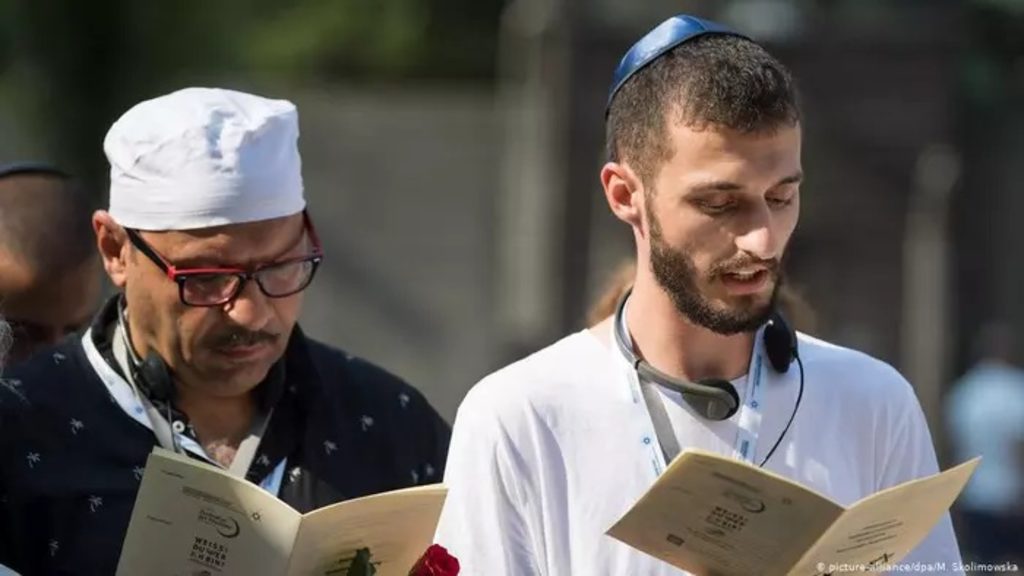In an age when social media can inflame passions faster than facts can catch up, few subjects are more clouded by misunderstanding than the connection between Israel, Palestine and the ancient peoples of the Middle East.
Among the most persistent claims circulating today is the idea that the Jewish people never had a homeland, or that scripture does not recognise their historical presence in the region.
But when we turn away from slogans and go back to source texts, and in this case, specifically the Qur’an, we find a narrative far more nuanced, historically grounded and spiritually rich than what appears online.
The Qur’an, respected as the final revelation in Islam, preserves an important part of the story of the Children of Israel. And what it says and does not say has relevance for anyone seeking truth rather than tribalism.
The Qur’an’s recognition of the children of Israel
One of the most striking realities is how often the Qur’an refers to Bani Isra’il, meaning the Children of Israel. These are the descendants of the prophet Jacob (Yaʿqūb), known in Islamic tradition as Israel. Across the Qur’an, this group is mentioned repeatedly in narratives of rescue, covenant, faith, failure and moral responsibility.
These references are not passing footnotes. They form a central thread running through the Qur’anic story. The Children of Israel are recognised as:
A historical people.
Bearers of a divine covenant.
A community entrusted with spiritual responsibility.
A group who experienced both divine favour and divine correction.
In an era where some claim that the Jewish connection to the land is a modern political invention, the Qur’an itself becomes a textual reminder of a very ancient and deeply embedded identity.
Explicit blessings in scripture
Another overlooked dimension is the Qur’an’s acknowledgement of divine blessings upon the Children of Israel. One of the clearest verses states:
“O Children of Israel, remember My favour which I bestowed upon you, and that I preferred you above the worlds.”
Qur’an 2:47
This verse, echoed in similar passages, highlights a special status in the spiritual history of the region. The blessing does not make them perfect or exempt them from moral accountability. The Qur’an also criticises their failures but it unmistakably affirms a unique relationship between the Children of Israel and the divine.
Such verses counter the narrative that Islam erases or diminishes Jewish spiritual heritage. In fact, it preserves it.
The word “Palestine” and the geography of the Qur’an
One factual point often misconstrued in online debates concerns the term “Palestine.”
The Qur’an does not contain the word “Palestine.”
This isn’t to say the land does not appear. The Qur’an speaks of a “holy land,” a “blessed land,” and mentions the surroundings of Al-Aqsa Mosque which is the third holiest site in Islam as sacred. These descriptions clearly acknowledge the spiritual gravity of the region we now call Palestine.
Islamic scholars, classical and contemporary, largely agree that the Qur’an’s references to the “blessed land” overlap with the ancient region known historically as Canaan. This region today encompasses parts of modern Israel and the Palestinian territories.
But as a literal term, “Palestine” does not appear. The Qur’an uses broader language rooted in spiritual significance rather than modern political labels.
A Holy Land with shared roots
In Qur’an 5:21, Moses addresses the Children of Israel with the words:
“O my people, enter the holy land which Allah has assigned to you…”
This verse has long been interpreted as relating to the ancient Israelite journey, not necessarily to permanent political possession. But what it does reveal is that the Qur’an itself acknowledges a historical linkage between a particular people and a particular land.
Similarly, Surah Al-Isra (17:1) references the Prophet Muhammad’s Night Journey to Al-Aqsa Mosque, describing its surroundings as “blessed.” Again, this speaks to the shared sacred geography valued by Jews, Christians and Muslims alike.
In short, the land holds profound meaning for all three Abrahamic traditions which is an important fact obscured when modern narratives attempt to erase one group’s history at the expense of another’s.
Why accuracy matters today
Acknowledging these scriptural details does not diminish the Palestinian experience of its suffering, its aspirations, or its attachment to the land. Nor does it endorse any political position or justify present-day actions.
But it does challenge misinformation that fuels division.
Millions of people today form their worldviews from snippets, headlines and emotionally charged posts. When these narratives rest on a foundation of falsehoods, they harden hearts and widen divisions.
By contrast, when we return to texts revered by over a billion Muslims, we find:
The Children of Israel are a recognised and blessed community.
Their history is grounded in the Qur’an itself.
The land holds sacred significance for them.
The Qur’an’s language about the region predates modern nationalism.
And the term “Palestine,” while not present by name, aligns with descriptions of a holy and blessed land.
Truth does not erase anyone’s story.
It simply makes room for all stories to be heard.
A foundation for understanding
The Israeli-Palestinian conflict is one of the world’s most painful and complex. It cannot be solved by verses alone. But clarity can reduce the hostility that blinds people to one another’s humanity.
Recognising the Qur’an’s portrayal of the Children of Israel does not weaken the Palestinian cause, nor diminish Muslim attachment to the land. Instead, it reminds us that the region’s heritage is shared, layered and sacred to many.
In an age of division, understanding, even when uncomfortable, is the first step towards peace.
- COLIN DEOKI lives in Melbourne, Australia and is a regular contributor to this newspaper. The views expressed in this article are his and not necessarily of this newspaper.



